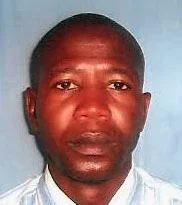Afolabi Gambari
According to UNICEF data, 7,100,000 babies were born in Nigeria in 2015, approximately 19,500 every day. The data also indicates that Nigeria’s neonatal mortality rate (NMR) is 34 deaths per 1,000 live births. Nine years separate 2015 and 2024. Therefore, in the event of the less-than-perfect health system that persists in Nigeria, it can only be imagined the rate of mortality among the country’s infants within the period.
By all measurements, the foregoing indicator is scary, just as it poses a great danger to the future of Nigeria, especially as this mortality involves children of 0 to 5 years range.
Yet, ensuring the survival of these children and their mothers before or after birth and up to five years is still not enough. As Dr. Martin Dohlsten, Health Manager, UNICEF, Abuja said recently, there is an urgent need for a mentality shift from survival of mother and child at birth to opportunities for both to thrive afterwards. The social system in place in Nigeria is faulty, that is if it even functions at all. This accounts for the acute difficulty that mothers experience in procuring the required medication for their children to enable the children to have good growth.
There are other fundamental issues beyond what the UNICEF health manager highlighted. For instance, despite the advancement in medicine globally and even in some parts of Africa, the traditional birth attendants still prevail in many places in Nigeria, although various stakeholders in the health sector have launched an awareness campaign against the practice given the inherent danger to the infants at birth while spreading education that it is a lot safer for mothers to deliver their babies at the primary health centres across the country. Answers are still being sought by health experts who include Dohlsten as to why expectant mothers would shun standard health facilities where adequate ante-natal care is guaranteed to save the newborns from infections, asphyxia and immaturity. There is however unanimity among the stakeholders that they must of necessity get engaged in well-coordinated and sustained interventions towards achieving this vision in the overall interest of Nigeria’s future.
At the moment in Cross River State where the prevalence of traditional birth attendants is high due to age-old culture that is attached to the practice, health experts in the state have adopted an inclusive approach which still aims at reducing child mortality to the barest minimum.
Dr Vivian Otu, Director General of Cross River State Primary Health Development Agency, admitted that traditional birth attendants are a common feature in the state, although she also contended that there is no indication yet that the practice has become a phenomenon. She said: “We appreciate the fact that the traditional birth attendants are patronised by a lot of women in the state, which is a result of the culture and tradition of the people. But we have since developed a strategy to engage them in a series of meetings aimed at educating them on the need for safety of the newborn babies. We have a collaborative engagement with them such that in situations where they are overwhelmed, they can make referrals to the primary health centres or the general hospitals as the cases may demand. We also give incentives to expectant mothers to patronise standard facilities for their babies’ delivery because, at the end of the day, it is the well-being of mothers and babies that matters.” Not a few have reckoned the Cross River approach as the most proactive in the country, especially as it emphasises the safety of infant lives. But it remains to be seen how other states in Nigeria can adopt a similar approach and when.
In the meantime, both Mrs Aderonke Akinola-Akinwole, SBC Specialist, UNICEF Lagos Office and Dr. Olusoji Akinleye, Health Specialist, UNICEF Enugu Office, have identified social and cultural barriers as hampering meaningful interventions on child mortality and advocated strong measures at breaking the barriers, even as they posit that the media have an onerous role to play in bringing all the stakeholders together to form a united front in fighting the scourge of child mortality that threatens to decimate the future of Nigeria.
On December 11, the Bauchi State government, in collaboration with UNICEF, launched a first-ever oxygen plant in the state capital. The new Pressure Swing Adsorption (PSA) oxygen plant and a Level 2 Newborn Unit were commissioned at the Bauchi State Specialist Hospital by Governor Bala Mohammed who described the facilities as “transformative investments in Bauchi State’s healthcare system, particularly for the survival of children and vulnerable groups.”
Funded by CANADA and IHS, the PSA oxygen plant can produce 135 oxygen cylinders (20-litre bottles) in 24 hours, delivering 720,000 litres of medical oxygen daily. This capacity can support up to 100 children with severe pneumonia or 50–60 patients requiring round-the-clock oxygen therapy. Equipped with cylinders, related accessories and a backup manifold system, the gas plant will not only serve the General Hospital but also other healthcare facilities across the state. The Level 2 Newborn Unit itself is designed to provide advanced neo-natal care, ensuring premature and critically ill newborns receive life-saving treatment, reflecting a strong commitment by the state to reducing neonatal and child mortality.
All the foregoing indicates progress, no matter how minimal. But the sustainability would prove key in tackling the challenges of the years ahead.







